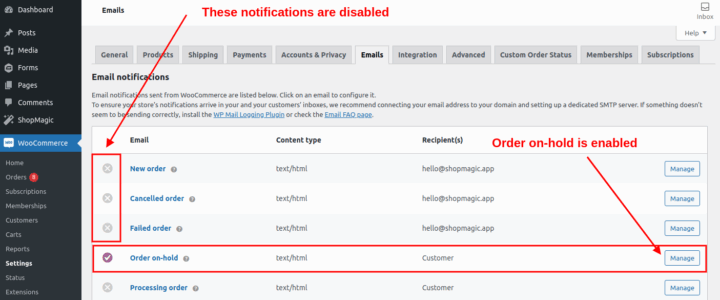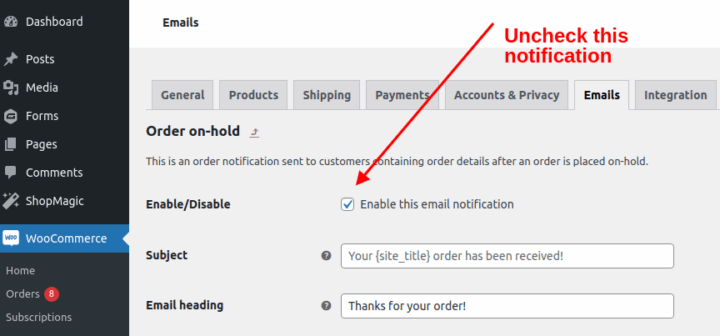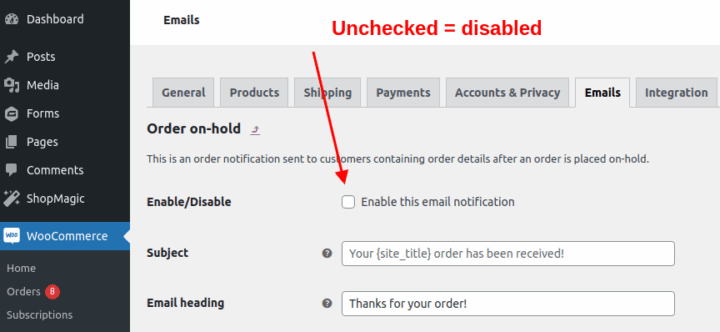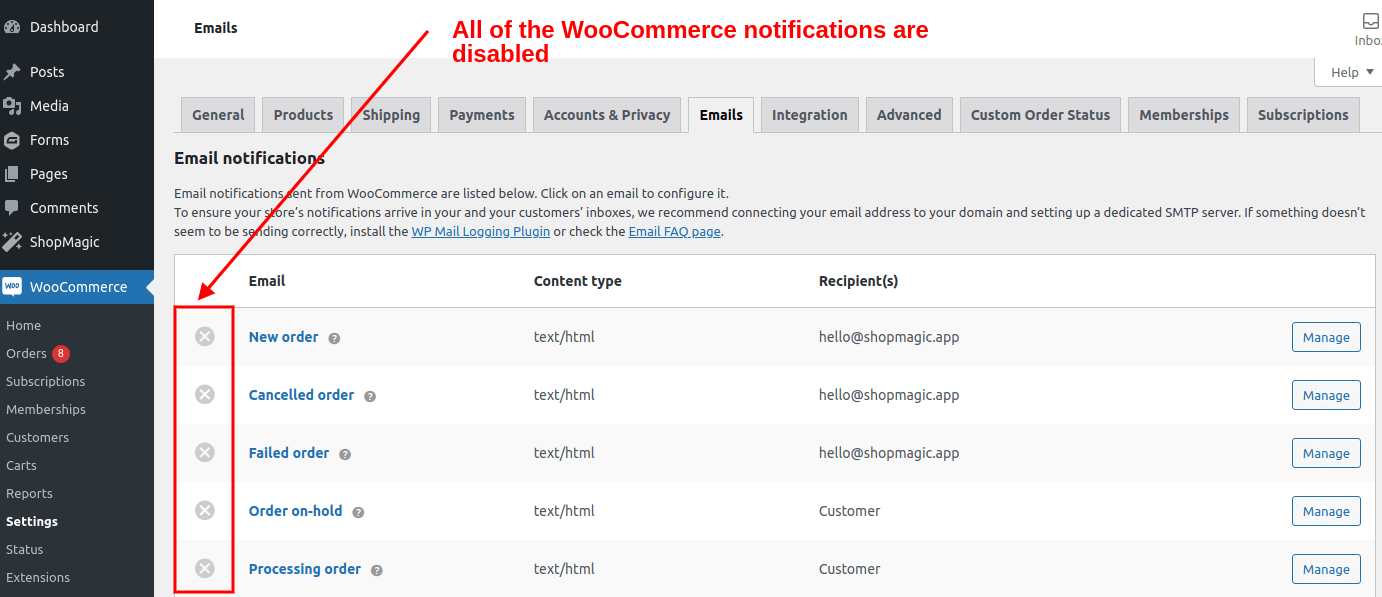When your first automation is triggered, there's a chance that the customer will receive both e-mails. One from ShopMagic's automation, and one from WooCommerce order notifications. Especially if you created automation for one of the standard order statuses, like new order or order completed.
To prevent this, you should disable WooCommerce order notifications. Here's what you have to do. We will use order on-hold as an example:
1. Navigate to WooCommerce > Settings > Emails.
2. Here, you can manage all of WooCommerce notifications. As you can see in the screenshot, almost all are disabled, however, one for order on-hold is enabled. To disable it, click on its name or the manage button.

3. You should see a window similar to this one:
4. If there's a checkmark, it means that notification is enabled. Uncheck it, and save the changes.
5. That's it. WooCommerce notification for order on-hold is disabled. You can do the same for every other type of notification.



